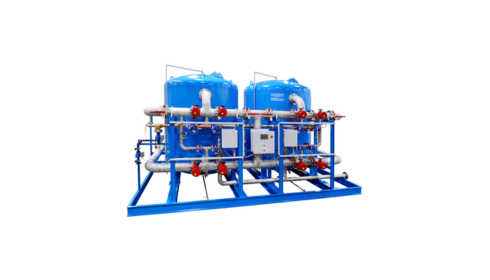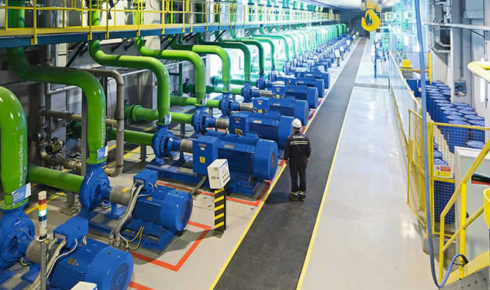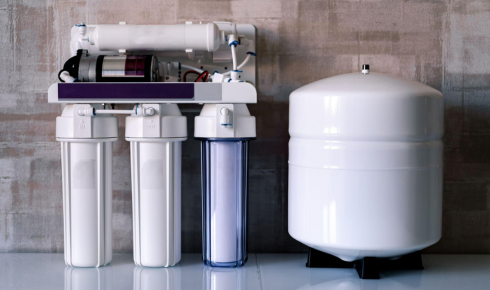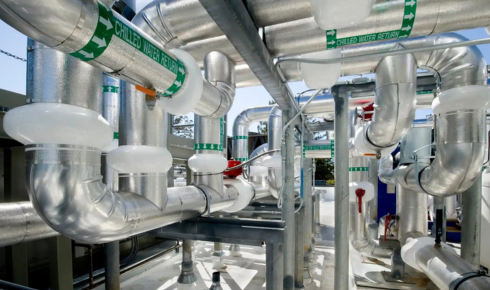Water isn’t just water. Anyone who’s dealt with hard water buildup on pipes, machines, or even glassware knows the difference. For homeowners, a little scaling is annoying. But for businesses, it can eat into profits, reduce equipment lifespan, and increase operating costs. That’s why companies across industries — from hotels to manufacturing plants — are leaning toward smarter, large-scale water softening solutions that go beyond what you’d find in a residential setup.
This shift isn’t just about shiny new technology. It’s about cutting costs, saving time, and creating better experiences for customers and employees alike. Let’s dig into why water softening has become a quiet game-changer for so many industries.
The Hidden Costs of Hard Water
Hard water contains higher levels of minerals like calcium and magnesium. On paper, that doesn’t sound like a big deal, but inside pipes and machines, these minerals build up over time. For a restaurant, it might mean coffee machines clogging faster than expected. For a hotel, it could show up as stiff sheets and towels that never feel truly clean.
Scaling also reduces the efficiency of heating systems and boilers, forcing them to use more energy for the same output. When you multiply that across months or years, the operating expenses stack up quickly. Many business owners don’t realize just how much of their budget is trickling away because of untreated water.
Why Commercial Needs Are Different
A family of four using a modest home softener has very different needs than a hotel with 200 rooms or a car wash servicing hundreds of vehicles every day. This is where a commercial water softening system makes all the difference. It’s designed to handle larger volumes of water consistently without breaking down under pressure.
Beyond capacity, commercial systems are built for reliability. When downtime equals lost revenue, no business can afford equipment that constantly needs repairs. That’s why commercial units often come with more durable resin tanks, advanced control valves, and monitoring systems that allow operators to keep an eye on performance.
The Role of Industrial Water Treatment
Manufacturing plants, food processing facilities, and energy companies face an even steeper challenge. Here, water quality isn’t just about saving on detergent or keeping linens soft. It’s about maintaining strict compliance with safety and production standards. That’s where an industrial water softener system comes into play.
These setups are engineered to handle not only massive volumes of water but also the complexity of industrial processes. Whether it’s ensuring precise cooling in a power plant or preventing scale in pharmaceutical equipment, these systems protect investments worth millions. They’re less about convenience and more about absolute necessity.
Day-to-Day Benefits That Add Up
The perks of water softening don’t only show up on balance sheets. They’re also visible in day-to-day operations:
- Cleaner glassware and dishes in restaurants, cutting down on rewashing.
- Better tasting food and beverages since minerals don’t interfere with flavors.
- Extended lifespan of laundry in hotels and hospitals, keeping fabrics soft and fresh.
- Reduced chemical use, because softened water makes soaps and detergents more effective.
Each of these small benefits creates a better customer experience, which in turn fuels reputation and repeat business. When you add that to energy and equipment savings, the case for upgrading becomes pretty compelling.
Technology Is Raising the Bar
Modern softening systems aren’t the clunky machines of the past. Newer designs feature digital controls, sensors, and smart monitoring. This tech allows facility managers to see exactly how much salt, water, and energy the system is using — sometimes even remotely via apps.
There’s also a growing push toward eco-friendly systems that use less salt and waste less water during the regeneration cycle. For businesses under pressure to meet sustainability goals, these greener solutions tick two boxes at once: cutting costs and improving their environmental footprint.
The Competitive Edge for Service Businesses
It’s not always obvious, but water quality impacts customer experience in subtle ways. Guests notice when hotel towels feel scratchy or when a glass of water has a metallic taste. In restaurants, scale buildup on glassware or cloudy ice cubes can quietly chip away at brand reputation.
That’s why so many service-oriented businesses are investing in commercial water softeners. They don’t just see them as behind-the-scenes infrastructure, but as tools for elevating customer satisfaction. In highly competitive markets, those details can make the difference between a one-time visit and a loyal customer base.
Choosing the Right System
Of course, no two businesses are the same. A small bakery might not need the same setup as a massive manufacturing plant. That’s why choosing the right system starts with a thorough water analysis. Understanding hardness levels, flow rates, and usage patterns allows businesses to pick a solution that actually fits rather than over- or under-investing.
Professional installation and ongoing maintenance also matter. A top-tier system can underperform if it’s not sized correctly or serviced regularly. Working with experienced providers helps ensure the system delivers the savings and performance it’s supposed to.
Looking Ahead
Water is one of those things people often take for granted, but behind the scenes, it plays a huge role in business operations. With rising utility costs and growing awareness of sustainability, more businesses are rethinking their approach. Smarter, more efficient softening systems are quickly becoming the norm rather than the exception.
For businesses still dealing with scale buildup, rising energy bills, or frequent equipment breakdowns, the message is clear: it might be time to take a closer look at water. The right solution could save money, protect equipment, and improve customer experiences all in one go.
Final Thoughts
At the end of the day, investing in better water treatment isn’t just a technical upgrade — it’s a business strategy. Whether you’re running a boutique hotel, a busy restaurant, or a large-scale factory, the benefits ripple through nearly every aspect of operations.
Clean, soft water doesn’t just keep machines running longer. It keeps customers happier, staff more efficient, and businesses more competitive. And in an environment where every detail matters, that’s a quiet advantage worth paying attention to.




